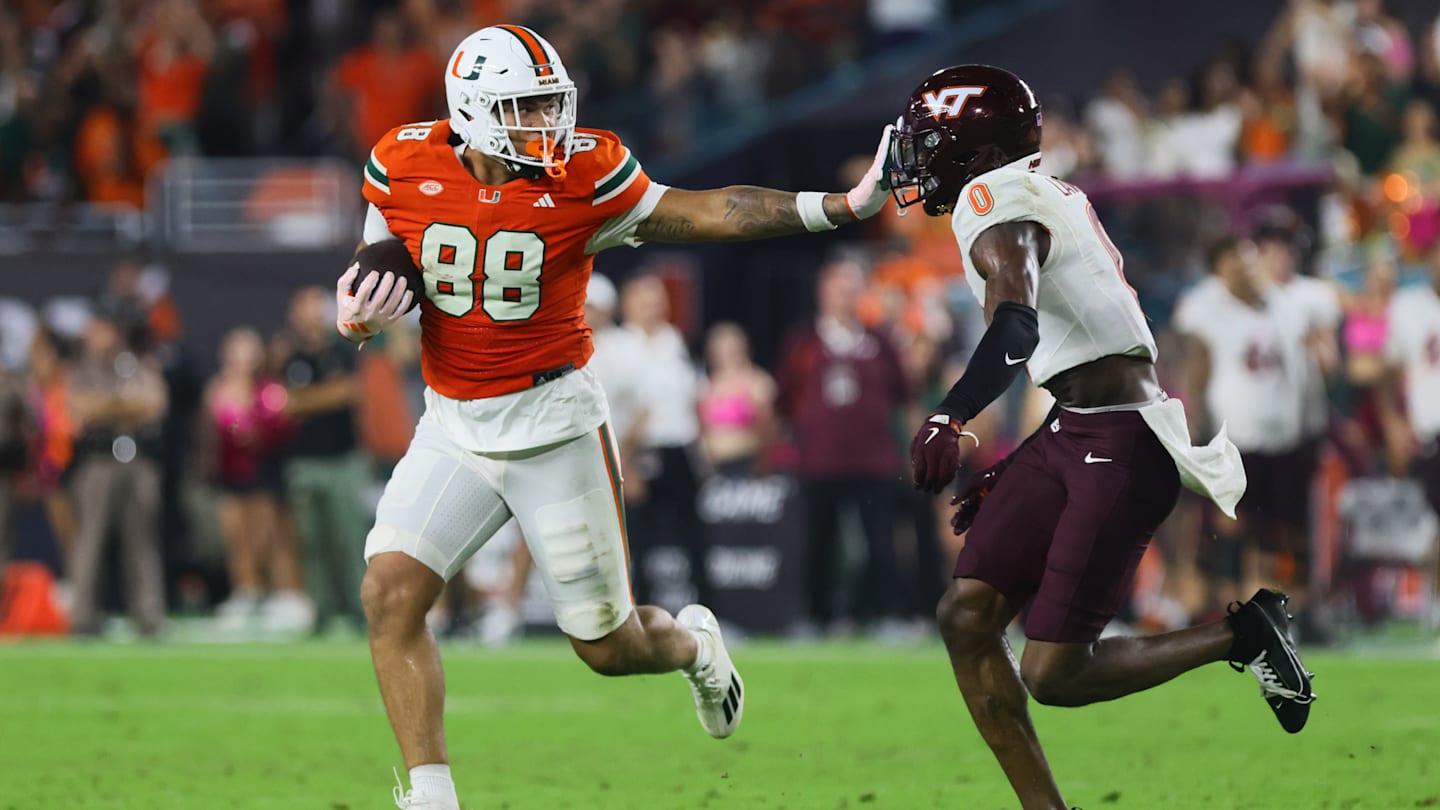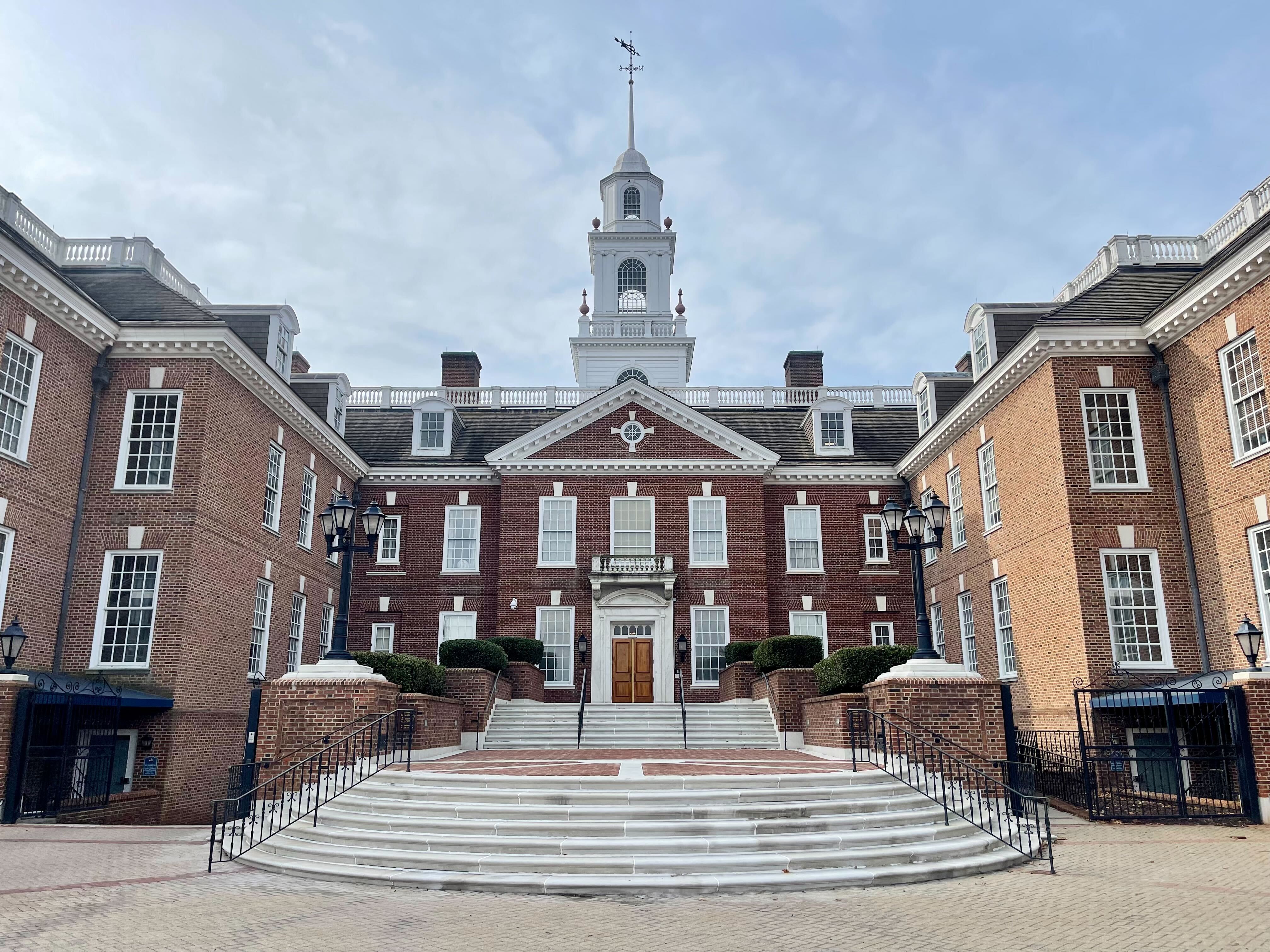Oregon
Deion Sanders: ‘No excuses’ for Colorado’s loss to Oregon

Colorado football coach Deion Sanders said there were “No excuses” for his team taking its first loss of the season Saturday to Oregon, a 42-6 blowout on the road at Autzen Stadium. Here’s what you need to know:
- Sanders said Oregon’s coaches “did a good job preparing their team” and “Obviously, we didn’t.” He added: “People around the country will say ‘This is what they needed to humble themselves.’ We weren’t arrogant. We’re confident people. Our confidence offends their insecurity.”
- The Hall of Famer said he was “surprised” the Buffaloes “played like hot garbage.”
- Oregon coach Dan Lanning delivered a passionate pregame speech to his players, saying in part, “They’re fighting for clicks, we’re fighting for wins.” He added after the win that his team remains “hungry to get better.”
- Sanders also said he “keeps receipts” regarding Lanning’s comments: “I don’t say something just to say stuff for a click, despite what some people might say.”
Backstory
The Ducks entered the game as a three-touchdown favorite with their offense averaging 58 points per game under the Heisman-contending QB Nix.
Colorado’s offense had also been electric, however, averaging 40 points per game with Shedeur Sanders leading the way; he threw for 1,251 yards and 10 touchdowns over the first three weeks of the season. But the Buffaloes were without two-way standout Travis Hunter, who was injured in last week’s win against rival Colorado State when he was on the receiving end of a late hit. Hunter has been one of the most dominant players in college football so far this season as a wide receiver and defensive back, averaging over 100 snaps over the first two games before his injury.
Addressing Hunter’s absence Saturday, Deion Sanders said, “Travis is always missed. He’s the best darn player in college football. That’s like you writing an article and your pen is missing.”
Required reading
(Photo: Soobum Im / USA Today)

Oregon
How Denzel Burke, Davison Igbinosun and the rest of Ohio State’s defense graded against Oregon in the Rose Bowl

COLUMBUS, Ohio — Denzel Burke and Davison Igbinosun came into Ohio State’s rematch against Oregon in the Rose Bowl with a point to prove and each did just that.
Burke wanted to prove that his showing in the last meeting was nothing more than just a bad day and a better performance was on the horizon. The result was being targeted just once with no catches on his way to a Pro Football Focus grade of 70.1.
Igbinosun didn’t take lightly the way the Ducks’ receiver spoke of his ‘weaknesses’ heading into the College Football Playoff matchup. He allowed four catches on five targets but for only 45 yards and a score. He posted a grade of 65.3
Latest Ohio State Buckeyes news
- Ohio State has lost another offensive lineman to the transfer portal
- Why Ryan Day’s confidence in a struggling player is paying off for Ohio State football
- Ohio State men’s basketball falters late vs. No. 18 Michigan State
- One Ohio State team has already beaten Michigan in 2025
Here’s how the rest of the defense graded:
(PFF grades every player on every play and uses a scale of 0-100, with higher grades indicating better play. PFF has explained its grades this way: 100-90 elite; 89-85 Pro Bowler; 84-70 starter; 69-60 backup; 59-0 replaceable. In other words, it’s similar to how we would match up percentages with traditional letter grades in school.)
NOTE: Snap counts in parentheses.
DEFENSIVE END
Jack Sawyer: 72.2 (49)
Mitchell Melton: 69.4 (9)
J.T. Tuimoloau: 65.0 (54)
Caden Curry: 64.1 (10)
Kenyatta Jackson: 57.8 (22)
DEFENSIVE TACKLE
Eddrick Houston: 79.3 (14)
Tyleik Williams: 77.0 (49)
Hero Kanu: 65.0 (8)
Tywone Malone: 59.5 (3)
Ty Hamilton: 57.8 (54)
Kayden McDonald: 56.8 (9)
LINEBACKER
Cody Simon: 71.6 (71)
Arvell Reese: 60.6 (2)
C.J. Hicks: 60.0 (1)
Sonny Styles: 55.8 (71)
CORNERBACK
Denzel Burke: 70.4 (41)
Jermaine Mathews: 69.8 (40)
Davison Igbinosun: 65.0 (63)
Jordan Hancock: 64.1 (69)
Lorenzo Styles Jr.: 52.9 (9)
SAFETY
Caleb Downs: 75.5 (72)
Lathan Ransom: 55.8 (72)
Oregon
Riley Williams goes in-depth on Oregon State commitment: Maalik Murphy ‘sealed the deal for me’

Riley Williams is coming home.
On Saturday during a visit to campus, the Miami Hurricanes tight end and former Central Catholic star announced his transfer portal commitment to the Oregon State Beavers.
“It was really that thought of playing back home,” he said. “Believe it or not, I was born and raised in Portland Oregon and I’d never stepped foot in Corvallis. It was my first time being down there.”
“I had connections with the coaches — whether they were Central Catholic alumni or just through local ties. And the opportunity was huge. I’d go there and be able to showcase my talent.”
In two seasons at Miami, Williams played in nearly every game and accumulated 15 receptions for 187 yards and one touchdown.
The 6-foot-6, 240-pound tight end will have two years of eligibility remaining.
After entering his name into the portal in late December, Williams heard from dozens of schools, but was most heavily recruited by Cal, Oregon State and UCLA.
The Beavers earned the first visit this weekend, in part, due to a pair of peer recruiters.
“Darrius (Clemons) was definitely recruiting me,” Williams said. “He was on me heavy, for sure. He was on me the most behind the transfer quarterback, Maalik Murphy.”
Williams’ Miami team played against Murphy while he was at Duke this fall and the newest Beaver was impressed by the quarterback’s ability to make plays with his arm.
“To be honest, when I saw him (in Corvallis) I didn’t realize how tall he is. He’s huge,” Williams said. “He’s got the ability to throw the ball. He’s a 3,000-yard passer. I’m excited to be on that team and catch those passes and block for him and do whatever I’m supposed to do.”
Would Williams have still chosen Oregon State without a star transfer quarterback coming in?
“I don’t know,” he said, thinking. “Honestly, not sure. But once he signed and hit me up, that sealed the deal for me.”
As a class of 2023 high school prospect, Williams was a star at Central Catholic before transferring to national powerhouse IMG Academy (Florida) for his senior season.
A heralded bluechip recruit, Williams was selected as an Under Armour All-American and committed to Miami over more than 20 scholarship offers, highlighted by Alabama, Florida State, LSU, Michigan, Ohio State, Oregon, Tennessee, Texas and others.
At Miami, Williams earned immediate playing time, but was not utilized as a pass-catcher as much as his high school profile projected.
Offensive fit, therefore, was a massive piece of the puzzle when looking at his options as a transfer.
And Oregon State offensive coordinator Ryan Gunderson’s offense made for an excellent fit.
“I have two years of experience under my belt. I’ve played almost every game of my college career so far,” Williams said. “Through that, you see that you have to see a school that is going to utilize you and give you the opportunity to show what you can do to help you win. You have an offensive coordinator, coach Ryan Gunderson, he’s a previous (offensive coordinator) at UCLA when they had Greg Dulcich. It’s going to be an offense where the tight ends are utilized.”
Perhaps the final key piece in Oregon’s favor? The programs recent pipeline of in-state tight ends becoming NFL’ers – Teagan Quitoriano (Sprague) and Luke Musgrave (Bend).
Williams hopes to arrive in Corvallis sometime next week.
He’s ready to work – and to showcase his ability closer to home.
Nemec’s analysis
I’ve covered Riley Williams extensively since his freshman season.
Coming out of high school, I had a high four-star grade on him – with an NFL ceiling.
I still feel that way – and continue to love him as both an on-field asset and a culture fit.
Simply put, he’s a good athlete and human being.
Mario Cristobal’s offenses – both at Oregon and Miami – have somewhat limited the passing game, especially pass-catching tight ends.
When he committed, I had some concern about how he’d be used, and I think the Miami offense wasn’t the best fit for his skillset.
i expect Williams to immediately become a key focal point in the Oregon State offense and for his numbers to quickly reflect that of his recruiting stock coming out of high school.
Oregon
Oregon summer camp for children of military families seeks state funding help

In this undated photo provided by Oregon Summer Star, campers fold a flag in honor of those who serve in the military. A new bill would support the camp, which supports children from military families. The camp has recently faced financial struggles.
Courtesy of Oregon Summer Star
Active duty federal military installments are for more than just national defense. Forts, bases and outposts offer grocery stores, bowling alleys, churches and other centers of civic life that provide community for families and support children whose parents serve.
Oregon is one of a handful of states that doesn’t have any active duty bases. Since 2006, Oregon Summer Star, the state’s only overnight summer camp for children of military families, has sought to fill that gap by bringing these kids together and helping them through the challenges of being apart from an enlisted parent. But recently, funding the camp has gotten harder.
“The last five years, we have been retreating to a place where we can barely pull it off,” said Ethan Erickson, the founder of Tsuga Community Commission, a nonprofit that sponsors and administers the camp. “And we’re at a point now where if we don’t have $50,000 by a certain date, we’re not going to be able to do it.”
Sen. Suzanne Weber, R-Tillamook, is proposing a bill during this upcoming legislative session that would allocate more than $100,000 for the camp, which supports families of veterans, the Oregon Army National Guard, and children with other military connections.
The camp has “been operating purely on donations for many years now and it has come to our attention that this much needed service for military affected youth could come to an end very soon without help,” Katy Cvitanovich, Weber’s chief of staff, said in an email. “With assistance they could continue providing the vital support and sense of community Oregon’s military impacted youth deserve.”
Lawmakers review hundreds of spending requests like this during any legislative session. It will be months before they have a firm sense for the state’s financial picture and the costs of the largest issues they plan to address during the upcoming session, including housing and transportation.
Ultimately, this will determine how much is left to spend on other projects, so it’s unclear whether the bill stands a chance of passing. Cvitanovich said in a text message that lawmakers have yet to determine how they would fund it.

In this undated photo provided by Oregon Summer Star, campers paddle canoes on a summer day. The camp used to host about 200 children from military families each year, but now hosts about 50. The camp’s goal is to provide community to children with military ties.
Courtesy of Oregon Summer Star
Oregon Summer Star used to serve nearly 200 kids annually, at locations that included Central Oregon, Southern Oregon, the Willamette Valley, and most recently Camp Cedar Ridge in northern Willamette Valley off Highway 26 in Vernonia.
Campers pay $350 to attend, but the new bill would cover the cost for military families to participate, Erickson said. Other camp costs, including staffing and extracurriculars, would still be funded by donations. There are more than 2,000 children in Oregon with active-duty parents, and more than 7,200 with parents in the National Guard or military reserve, according to Dec. 31, 2023, data from the Department of Defense.
In recent summers, the camp hosted about 50 children annually. It costs about $50,000 to run the camp annually, and food costs, property taxes and associated costs of facilities have increased, making it harder to fund the maintenance staff, cooks, nurses and others who keep it running.
“We literally can’t afford the cost of feeding and giving somebody a bed for the night at the camp itself,” said Erickson, who served as a lieutenant with the Oregon Army National Guard.
The week-long camp offers children the chance to play games such as capture the flag and recreational activities like swimming, volleyball and basketball. Throughout the week, campers take part in activities designed to teach them about plants and stream biology and more. Like any summer camp, attendees sing songs and perform cabin skits.
But the camp also includes activities aimed at relating to experiences of families in the military, including raising and lowering the flag and singing a version of “Taps” at the day’s end. By Thursday of camp weeks, when the campers are comfortable and opening up, the kids get an up close look at their parents’ lives in the military: The Oregon Army National Guard brings out vehicles like Humvees and, once, a Black Hawk helicopter. Kids try on camouflage uniforms and helmets and use a radio.
“It’s a way to close that gap a little bit,” Erickson said.
The camp is an important way to help kids in an emotionally turbulent moment in their lives, Erickson said. There’s mental health help and sharing circles with social workers where kids get to talk about experiences that only other campers understand, everything from missed birthdays to picking up an absent parent’s chores to the challenges of growing up without a supportive adult nearby.
“Kids serve, too,” Erickson said. “They didn’t make the choice to get in uniform, but they have to serve, too. They have to do their part within the family.”

In this undated photo provided by Oregon Summer Star, campers gather around a campfire. During the annual week-long camp, attendees sing songs, perform skits, play volleyball and learn more about their family’s lives in the military. Supporters of the camp say it helps children feel less alone during the isolating experience of being apart from an enlisted parent.
Courtesy of Oregon Summer St
Annette Caroline, a 15-year-old student, moved to Portland from Washington D.C. in 2019. She said the camp was one of the first ways she made friends after leaving an area with a significantly higher population of families with armed services members. Her father was a lieutenant colonel in the U.S. Air Force. At camp, she said she’s made friends who can relate to her experience, prompting her to return every year since. Now she’s planning to be a counselor.
“Sometimes I’ll mention something to my friends who don’t have any military affiliation, and they’ll just kind of look at me sideways and be like, what?” she said. “But when I get to talk to these people from camp we all get to have this good sense of connection, and we get to relate to each other in a way that’s really difficult to find in other places in Oregon.
If the camp were canceled, she said, the loss would be a big deal to people like her.
“I think it would break a lot of hearts of the campers there and the counselors themselves who are always looking forward to the next week of camp to not be able to have that anymore,” she said.
Should the bill pass, Erickson said it would be enough to buoy the camp for at least two years, giving them time to figure out a long-term funding plan.
-

 Health1 week ago
Health1 week agoNew Year life lessons from country star: 'Never forget where you came from'
-
/cdn.vox-cdn.com/uploads/chorus_asset/file/24982514/Quest_3_dock.jpg)
/cdn.vox-cdn.com/uploads/chorus_asset/file/24982514/Quest_3_dock.jpg) Technology1 week ago
Technology1 week agoMeta’s ‘software update issue’ has been breaking Quest headsets for weeks
-

 Business4 days ago
Business4 days agoThese are the top 7 issues facing the struggling restaurant industry in 2025
-

 Politics1 week ago
Politics1 week ago'Politics is bad for business.' Why Disney's Bob Iger is trying to avoid hot buttons
-

 Culture4 days ago
Culture4 days agoThe 25 worst losses in college football history, including Baylor’s 2024 entry at Colorado
-

 Sports4 days ago
Sports4 days agoThe top out-of-contract players available as free transfers: Kimmich, De Bruyne, Van Dijk…
-

 Politics2 days ago
Politics2 days agoNew Orleans attacker had 'remote detonator' for explosives in French Quarter, Biden says
-

 Politics2 days ago
Politics2 days agoCarter's judicial picks reshaped the federal bench across the country


















